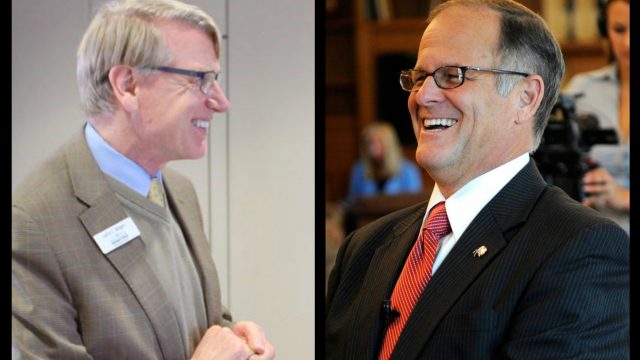Chancellor To NDSU President Dean Bresciani: Quit Making It Easy For Critics

Yesterday we got news that former Bismarck State College President and current Chancellor of the North Dakota University System Larry Skogen had canceled performance reviews of the state’s university presidents which were requested by previous Chancellor Hamid Shirvani.
Shirvani requested them as a part of a group of scathing evaluations he wrote for some of the state’s university presidents (which Skogen promptly replaced with uncritical evaluations upon taking office), among them NDSU President Dean Bresciani, UND President Robert Kelly and Minot State President David Fuller (who has since retired). Even though Shirvani’s evaluations were requested by the State Board of Higher Education, his time in office was ended shortly after the aforementioned university presidents complained.
Skogen has now decided not to proceed with the extensive reviews Shirvani requested as a part of those evaluations.
This is not sitting well with many in the state, including legislators I’ve spoken to who feel this sort of review is desperately needed.
But what’s interesting is that Skogen did produce evaluations of the university presidents that were much more modest in scope. You can read them all below. They’re generally not very interesting (Skogen has proven to be little more than a sycophant for the university presidents), but one part of NDSU President Dean Bresciani’s review caught my eye.
Here’s some context before you read it: In November voters will cast their ballots on constitutional amendment which would eliminate the existing part-time State Board of Higher Education and replace it with a commission of three appointed, full-time members. It would also eliminate Skogen’s position. Obviously, a vote for this would be the electorate expressing no confidence in the current leadership of the university system.
Which brings us to Skogen gently asking Bresciani, easily the most volatile and bombastic of the state’s pompous group of pampered university presidents, to watch his mouth. In about as craven and deferential a manner as you could imagine:

In other words, Skogen is telling Bresciani that they have it pretty good right now. They basically get to do what they want. But a new governing structure – i.e. the one proposed on the November ballot – might bring in a new regime focused more on accountability than just letting university presidents do whatever they want.
That’s revealing for a couple of reasons.
First, it indicates that there are fears of the proposed reforms in the university system.
Second, it shows that Bresciani is seen as an agitating factor. Or, put another way, the face of the university system’s problems. You’ll notice that Skogen didn’t feel it necessary to include a similar warning, however couched obsequious language, for any of the other univeresity presidents.




